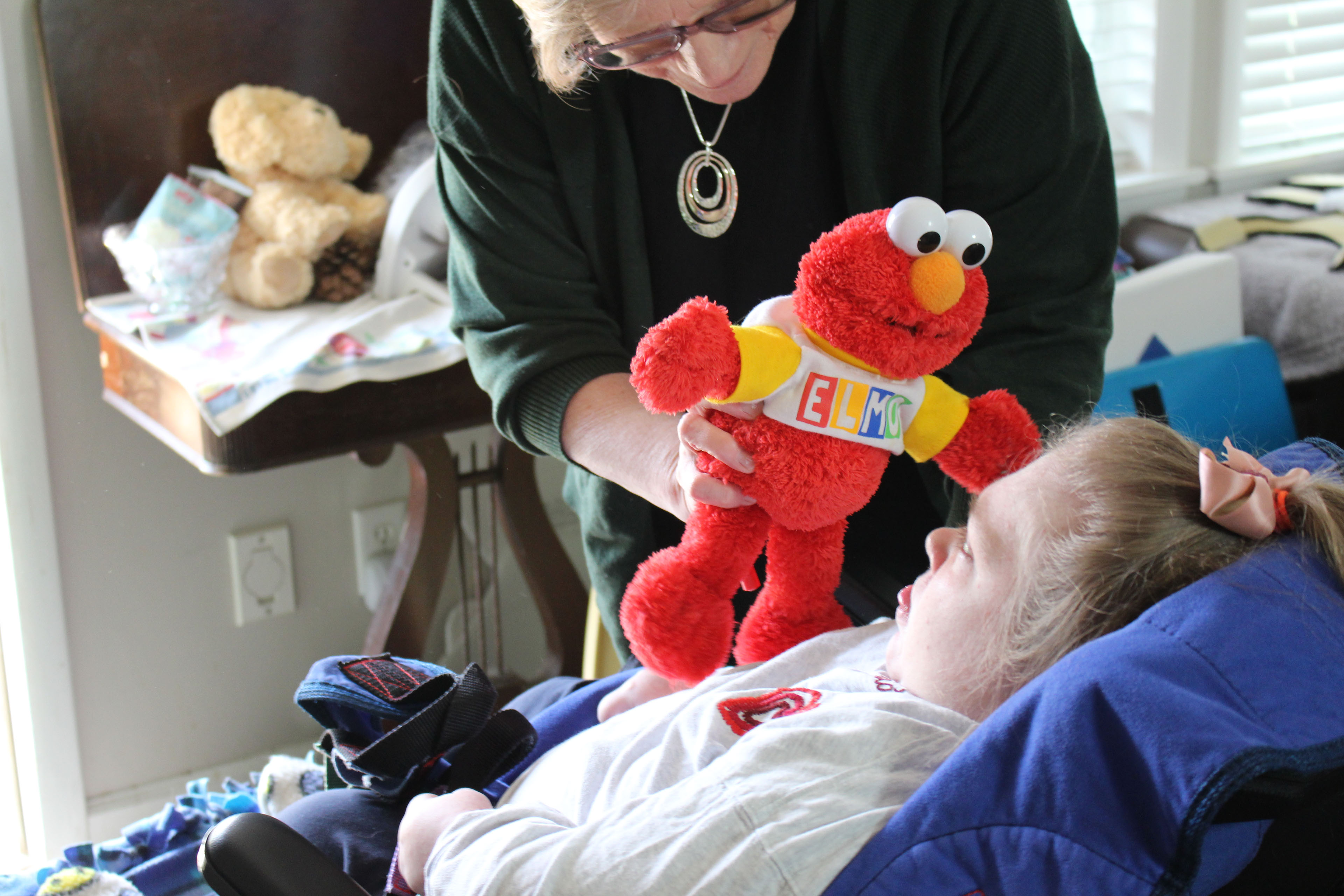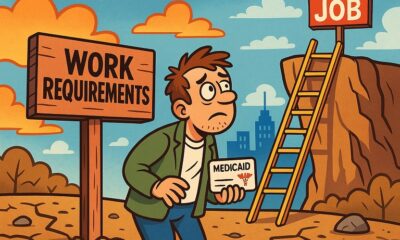Kaiser Health News
‘Dr. Google’ Meets Its Match: Dr. ChatGPT
Andrew Leonard
Tue, 12 Sep 2023 09:00:00 +0000
As a fourth-year ophthalmology resident at Emory University School of Medicine, Riley Lyons’ biggest responsibilities include triage: When a patient comes in with an eye-related complaint, Lyons must make an immediate assessment of its urgency.
He often finds patients have already turned to “Dr. Google.” Online, Lyons said, they are likely to find that “any number of terrible things could be going on based on the symptoms that they’re experiencing.”
So, when two of Lyons’ fellow ophthalmologists at Emory came to him and suggested evaluating the accuracy of the AI chatbot ChatGPT in diagnosing eye-related complaints, he jumped at the chance.
In June, Lyons and his colleagues reported in medRxiv, an online publisher of health science preprints, that ChatGPT compared quite well to human doctors who reviewed the same symptoms — and performed vastly better than the symptom checker on the popular health website WebMD. And despite the much-publicized “hallucination” problem known to afflict ChatGPT — its habit of occasionally making outright false statements — the Emory study reported that the most recent version of ChatGPT made zero “grossly inaccurate” statements when presented with a standard set of eye complaints.
The relative proficiency of ChatGPT, which debuted in November 2022, was a surprise to Lyons and his co-authors. The artificial intelligence engine “is definitely an improvement over just putting something into a Google search bar and seeing what you find,” said co-author Nieraj Jain, an assistant professor at the Emory Eye Center who specializes in vitreoretinal surgery and disease.
But the findings underscore a challenge facing the health care industry as it assesses the promise and pitfalls of generative AI, the type of artificial intelligence used by ChatGPT: The accuracy of chatbot-delivered medical information may represent an improvement over Dr. Google, but there are still many questions about how to integrate this new technology into health care systems with the same safeguards historically applied to the introduction of new drugs or medical devices.
The smooth syntax, authoritative tone, and dexterity of generative AI have drawn extraordinary attention from all sectors of society, with some comparing its future impact to that of the internet itself. In health care, companies are working feverishly to implement generative AI in areas such as radiology and medical records.
When it comes to consumer chatbots, though, there is still caution, even though the technology is already widely available — and better than many alternatives. Many doctors believe AI-based medical tools should undergo an approval process similar to the FDA’s regime for drugs, but that would be years away. It’s unclear how such a regime might apply to general-purpose AIs like ChatGPT.
“There’s no question we have issues with access to care, and whether or not it is a good idea to deploy ChatGPT to cover the holes or fill the gaps in access, it’s going to happen and it’s happening already,” said Jain. “People have already discovered its utility. So, we need to understand the potential advantages and the pitfalls.”
The Emory study is not alone in ratifying the relative accuracy of the new generation of AI chatbots. A report published in Nature in early July by a group led by Google computer scientists said answers generated by Med-PaLM, an AI chatbot the company built specifically for medical use, “compare favorably with answers given by clinicians.”
AI may also have better bedside manner. Another study, published in April by researchers from the University of California-San Diego and other institutions, even noted that health care professionals rated ChatGPT answers as more empathetic than responses from human doctors.
Indeed, a number of companies are exploring how chatbots could be used for mental health therapy, and some investors in the companies are betting that healthy people might also enjoy chatting and even bonding with an AI “friend.” The company behind Replika, one of the most advanced of that genre, markets its chatbot as, “The AI companion who cares. Always here to listen and talk. Always on your side.”
“We need physicians to start realizing that these new tools are here to stay and they’re offering new capabilities both to physicians and patients,” said James Benoit, an AI consultant. While a postdoctoral fellow in nursing at the University of Alberta in Canada, he published a study in February reporting that ChatGPT significantly outperformed online symptom checkers in evaluating a set of medical scenarios. “They are accurate enough at this point to start meriting some consideration,” he said.
Still, even the researchers who have demonstrated ChatGPT’s relative reliability are cautious about recommending that patients put their full trust in the current state of AI. For many medical professionals, AI chatbots are an invitation to trouble: They cite a host of issues relating to privacy, safety, bias, liability, transparency, and the current absence of regulatory oversight.
The proposition that AI should be embraced because it represents a marginal improvement over Dr. Google is unconvincing, these critics say.
“That’s a little bit of a disappointing bar to set, isn’t it?” said Mason Marks, a professor and MD who specializes in health law at Florida State University. He recently wrote an opinion piece on AI chatbots and privacy in the Journal of the American Medical Association. “I don’t know how helpful it is to say, ‘Well, let’s just throw this conversational AI on as a band-aid to make up for these deeper systemic issues,’” he said to KFF Health News.
The biggest danger, in his view, is the likelihood that market incentives will result in AI interfaces designed to steer patients to particular drugs or medical services. “Companies might want to push a particular product over another,” said Marks. “The potential for exploitation of people and the commercialization of data is unprecedented.”
OpenAI, the company that developed ChatGPT, also urged caution.
“OpenAI’s models are not fine-tuned to provide medical information,” a company spokesperson said. “You should never use our models to provide diagnostic or treatment services for serious medical conditions.”
John Ayers, a computational epidemiologist who was the lead author of the UCSD study, said that as with other medical interventions, the focus should be on patient outcomes.
“If regulators came out and said that if you want to provide patient services using a chatbot, you have to demonstrate that chatbots improve patient outcomes, then randomized controlled trials would be registered tomorrow for a host of outcomes,” Ayers said.
He would like to see a more urgent stance from regulators.
“One hundred million people have ChatGPT on their phone,” said Ayers, “and are asking questions right now. People are going to use chatbots with or without us.”
At present, though, there are few signs that rigorous testing of AIs for safety and effectiveness is imminent. In May, Robert Califf, the commissioner of the FDA, described “the regulation of large language models as critical to our future,” but aside from recommending that regulators be “nimble” in their approach, he offered few details.
In the meantime, the race is on. In July, The Wall Street Journal reported that the Mayo Clinic was partnering with Google to integrate the Med-PaLM 2 chatbot into its system. In June, WebMD announced it was partnering with a Pasadena, California-based startup, HIA Technologies Inc., to provide interactive “digital health assistants.” And the ongoing integration of AI into both Microsoft’s Bing and Google Search suggests that Dr. Google is already well on its way to being replaced by Dr. Chatbot.
This article was produced by KFF Health News, which publishes California Healthline, an editorially independent service of the California Health Care Foundation.
——————————
By: Andrew Leonard
Title: ‘Dr. Google’ Meets Its Match: Dr. ChatGPT
Sourced From: kffhealthnews.org/news/article/chatgpt-chatbot-google-webmd-symptom-checker/
Published Date: Tue, 12 Sep 2023 09:00:00 +0000
Kaiser Health News
Cutting Medicaid Is Hard — Even for the GOP
The Host
Julie Rovner
KFF Health News
Julie Rovner is chief Washington correspondent and host of KFF Health News’ weekly health policy news podcast, “What the Health?” A noted expert on health policy issues, Julie is the author of the critically praised reference book “Health Care Politics and Policy A to Z,” now in its third edition.
After narrowly passing a budget resolution this spring foreshadowing major Medicaid cuts, Republicans in Congress are having trouble agreeing on specific ways to save billions of dollars from a pool of funding that pays for the program without cutting benefits on which millions of Americans rely. Moderates resist changes they say would harm their constituents, while fiscal conservatives say they won’t vote for smaller cuts than those called for in the budget resolution. The fate of President Donald Trump’s “one big, beautiful bill” containing renewed tax cuts and boosted immigration enforcement could hang on a Medicaid deal.
Meanwhile, the Trump administration surprised those on both sides of the abortion debate by agreeing with the Biden administration that a Texas case challenging the FDA’s approval of the abortion pill mifepristone should be dropped. It’s clear the administration’s request is purely technical, though, and has no bearing on whether officials plan to protect the abortion pill’s availability.
This week’s panelists are Julie Rovner of KFF Health News, Anna Edney of Bloomberg News, Maya Goldman of Axios, and Sandhya Raman of CQ Roll Call.
Panelists
Anna Edney
Bloomberg News
Maya Goldman
Axios
Sandhya Raman
CQ Roll Call
Among the takeaways from this week’s episode:
- Congressional Republicans are making halting progress on negotiations over government spending cuts. As hard-line House conservatives push for deeper cuts to the Medicaid program, their GOP colleagues representing districts that heavily depend on Medicaid coverage are pushing back. House Republican leaders are eying a Memorial Day deadline, and key committees are scheduled to review the legislation next week — but first, Republicans need to agree on what that legislation says.
- Trump withdrew his nomination of Janette Nesheiwat for U.S. surgeon general amid accusations she misrepresented her academic credentials and criticism from the far right. In her place, he nominated Casey Means, a physician who is an ally of HHS Secretary Robert F. Kennedy Jr.’s and a prominent advocate of the “Make America Healthy Again” movement.
- The pharmaceutical industry is on alert as Trump prepares to sign an executive order directing agencies to look into “most-favored-nation” pricing, a policy that would set U.S. drug prices to the lowest level paid by similar countries. The president explored that policy during his first administration, and the drug industry sued to stop it. Drugmakers are already on edge over Trump’s plan to impose tariffs on drugs and their ingredients.
- And Kennedy is scheduled to appear before the Senate’s Health, Education, Labor and Pensions Committee next week. The hearing would be the first time the secretary of Health and Human Services has appeared before the HELP Committee since his confirmation hearings — and all eyes are on the committee’s GOP chairman, Sen. Bill Cassidy of Louisiana, a physician who expressed deep concerns at the time, including about Kennedy’s stances on vaccines.
Also this week, Rovner interviews KFF Health News’ Lauren Sausser, who co-reported and co-wrote the latest KFF Health News’ “Bill of the Month” installment, about an unexpected bill for what seemed like preventive care. If you have an outrageous, baffling, or infuriating medical bill you’d like to share with us, you can do that here.
Plus, for “extra credit” the panelists suggest health policy stories they read this week that they think you should read, too:
Julie Rovner: NPR’s “Fired, Rehired, and Fired Again: Some Federal Workers Find They’re Suddenly Uninsured,” by Andrea Hsu.
Maya Goldman: STAT’s “Europe Unveils $565 Million Package To Retain Scientists, and Attract New Ones,” by Andrew Joseph.
Anna Edney: Bloomberg News’ “A Former TV Writer Found a Health-Care Loophole That Threatens To Blow Up Obamacare,” by Zachary R. Mider and Zeke Faux.
Sandhya Raman: The Louisiana Illuminator’s “In the Deep South, Health Care Fights Echo Civil Rights Battles,” by Anna Claire Vollers.
Also mentioned in this week’s podcast:
Credits
Francis Ying
Audio producer
Emmarie Huetteman
Editor
To hear all our podcasts, click here.
And subscribe to KFF Health News’ “What the Health?” on Spotify, Apple Podcasts, Pocket Casts, or wherever you listen to podcasts.
We encourage organizations to republish our content, free of charge. Here’s what we ask:
You must credit us as the original publisher, with a hyperlink to our kffhealthnews.org site. If possible, please include the original author(s) and KFF Health News” in the byline. Please preserve the hyperlinks in the story.
It’s important to note, not everything on kffhealthnews.org is available for republishing. If a story is labeled “All Rights Reserved,” we cannot grant permission to republish that item.
Have questions? Let us know at KHNHelp@kff.org
The post Cutting Medicaid Is Hard — Even for the GOP appeared first on kffhealthnews.org
Note: The following A.I. based commentary is not part of the original article, reproduced above, but is offered in the hopes that it will promote greater media literacy and critical thinking, by making any potential bias more visible to the reader –Staff Editor.
Political Bias Rating: Center-Left
The content provides a balanced overview of current health policy issues with a slight lean towards framing Republican budget efforts and Medicaid cuts critically, emphasizing the potential negative impacts on constituents reliant on these programs. The coverage fairly presents multiple viewpoints, including fiscal conservatives and moderates within the Republican Party, but the tone suggests some skepticism towards conservative budget priorities and Trump administration policies. Overall, the focus on health care access and concerns about cuts aligns with a center-left perspective without strong partisan language or ideological bias.
Kaiser Health News
As Republicans Eye Sweeping Medicaid Cuts, Missouri Offers a Preview
CRESTWOOD, Mo. — The prospect of sweeping federal cuts to Medicaid is alarming to some Missourians who remember the last time the public medical insurance program for those with low incomes or disabilities was pressed for cash in the state.
In 2005, Missouri adopted some of the strictest eligibility standards in the nation, reduced benefits, and increased patients’ copayments for the joint federal-state program due to state budget shortfalls totaling about $2.4 billion over several prior years. More than 100,000 Missourians lost coverage as a result, and the Federal Reserve Bank of Philadelphia reported that the changes led to increases in credit card borrowing and debt in third-party collections.
A woman told NPR that year that her $6.70-an-hour McDonald’s job put her over the new income limits and rendered her ineligible, even though she was supporting three children on about $300 a week. A woman receiving $865 a month in disability payments worried at a town hall meeting about not being able to raise her orphaned granddaughter as the state asked her to pay $167 a month to keep her health coverage.
Now, Missouri could lose an estimated $2 billion a year in federal funding as congressional Republicans look to cut at least $880 billion over a decade from a pool of funding that includes Medicaid programs nationwide. Medicaid and the closely related Children’s Health Insurance Program together insure roughly 79 million people — about 1 in 5 Americans.
“We’re looking at a much more significant impact with the loss of federal funds even than what 2005 was,” said Amy Blouin, president of the progressive Missouri Budget Project think tank. “We’re not going to be able to protect kids. We’re not going to be able to protect people with disabilities from some sort of impact.”
At today’s spending levels, a cut of $880 billion to Medicaid could lead to states’ losing federal funding ranging from $78 million a year in Wyoming to $13 billion a year in California, according to an analysis from KFF, a health information nonprofit that includes KFF Health News. State lawmakers nationwide would then be left to address the shortfalls, likely through some combination of slashing benefits or eligibility, raising taxes, or finding a different large budget item to cut, such as education spending.
Republican lawmakers are floating various proposals to cut Medicaid, including one to reduce the money the federal government sends to states to help cover adults who gained access to the program under the Affordable Care Act’s provision known as Medicaid expansion. The 2010 health care law allowed states to expand Medicaid eligibility to cover more adults with low incomes. The federal government is picking up 90% of the tab for that group. About 20 million people nationwide are now covered through that expansion.
Missouri expanded Medicaid in 2021. That has meant that a single working-age adult in Missouri can now earn up to $21,597 a year and qualify for coverage, whereas before, nondisabled adults without children couldn’t get Medicaid coverage. That portion of the program now covers over 329,000 Missourians, more than a quarter of the state’s Medicaid recipients.
For every percentage point that the federal portion of the funding for that group decreases, Missouri’s Medicaid director estimated, the state could lose $30 million to $35 million a year.
But the equation is even more complicated given that Missouri expanded access via a constitutional amendment. Voters approved the expansion in 2020 after the state’s Republican leadership resisted doing so for a decade. That means changes to Medicaid expansion in Missouri would require voters to amend the state constitution again. The same is true in South Dakota and Oklahoma.
So even if Congress attempted to narrowly target cuts to the nation’s Medicaid expansion population, Washington University in St. Louis health economist Timothy McBride said, Missouri’s expansion program would likely stay in place.
“Then you would just have to find the money elsewhere, which would be brutal in Missouri,” McBride said.
In Crestwood, a suburb of St. Louis, Sandra Smith worries her daughter’s in-home nursing care would be on the chopping block. Nearly all in-home services are an optional part of Medicaid that states are not required to include in their programs. But the services have been critical for Sandra and her 24-year-old daughter, Sarah.
Sarah Smith has been disabled for most of her life due to seizures from a rare genetic disorder called Dravet syndrome. She has been covered by Medicaid in various ways since she was 3.

She needs intensive, 24-hour care, and Medicaid pays for a nurse to come to their home 13 hours a day. Her mother serves as the overnight caregiver and covers when the nurses are sick — work Sandra Smith is not allowed to be compensated for and that doesn’t count toward the 63-year-old’s Social Security.
Having nursing help allows Sandra Smith to work as an independent podcast producer and gives her a break from being the go-to-person for providing care 24 hours a day, day after day, year after year.
“I really and truly don’t know what I would do if we lost the Medicaid home care. I have no plan whatsoever,” Sandra Smith said. “It is not sustainable for anyone to do infinite, 24-hour care without dire physical health, mental health, and financial consequences, especially as we parents get into our elder years.”
Elias Tsapelas, director of fiscal policy at the conservative Show-Me Institute, said potential changes to Medicaid programs depend on the extent of any budget cuts that Congress ultimately passes and how much time states have to respond.
A large cut implemented immediately, for example, would require state legislators to look for parts of the budget they have the discretion to cut quickly. But if states have time to absorb funding changes, he said, they would have more flexibility.
“I’m not ready to think that Congress is going to willingly put us on the path of making every state go cut their benefits for the most vulnerable,” Tsapelas said.
Missouri’s congressional delegation split along party lines over the recent budget resolution calling for deep spending cuts, with the Republicans who control six of the eight House seats and both Senate seats all voting for it.
But 76% of the public, including 55% of Republicans, say they oppose major federal funding cuts to Medicaid, according to a national KFF poll conducted April 8-15.
And Missouri Sen. Josh Hawley, a Republican, has said that he does not support cutting Medicaid and posted on the social platform X that he was told by President Donald Trump that the House and Senate would not cut Medicaid benefits and that Trump won’t sign any benefit cuts.
“I hope congressional leadership will get the message,” Hawley posted. He declined to comment for this article.
U.S. House Republicans are aiming to pass a budget by Memorial Day, after many state legislatures, including Missouri’s, will have adjourned for the year.
Meanwhile, Missouri lawmakers are poised to pass a tax cut that is estimated to reduce state revenue by about $240 million in the first year.
The post As Republicans Eye Sweeping Medicaid Cuts, Missouri Offers a Preview appeared first on kffhealthnews.org
Note: The following A.I. based commentary is not part of the original article, reproduced above, but is offered in the hopes that it will promote greater media literacy and critical thinking, by making any potential bias more visible to the reader –Staff Editor.
Political Bias Rating: Center-Left
This content displays a center-left political bias by emphasizing the negative impacts of proposed Republican-led federal cuts to Medicaid funding. It highlights the struggles of low-income and disabled individuals who rely on Medicaid, underscores the importance of Medicaid expansion, and includes perspectives from progressive advocates concerned about the consequences of funding reductions. Although it presents some conservative viewpoints, such as those from the Show-Me Institute and mentions Republican lawmakers’ positions, the overall tone supports maintaining or expanding social welfare programs, reflecting a center-left leaning perspective.
Kaiser Health News
At Social Security, These Are the Days of the Living Dead
Rennie Glasgow, who has served 15 years at the Social Security Administration, is seeing something new on the job: dead people.
They’re not really dead, of course. In four instances over the past few weeks, he told KFF Health News, his Schenectady, New York, office has seen people come in for whom “there is no information on the record, just that they are dead.” So employees have to “resurrect” them — affirm that they’re living, so they can receive their benefits.
Revivals were “sporadic” before, and there’s been an uptick in such cases across upstate New York, said Glasgow. He is also an official with the American Federation of Government Employees, the union that represented 42,000 Social Security employees just before the start of President Donald Trump’s second term.
Martin O’Malley, who led the Social Security Administration toward the end of the Joe Biden administration, said in an interview that he had heard similar stories during a recent town hall in Racine, Wisconsin. “In that room of 200 people, two people raised their hands and said they each had a friend who was wrongly marked as deceased when they’re very much alive,” he said.
It’s more than just an inconvenience, because other institutions rely on Social Security numbers to do business, Glasgow said. Being declared dead “impacts their bank account. This impacts their insurance. This impacts their ability to work. This impacts their ability to get anything done in society.”
“They are terminating people’s financial lives,” O’Malley said.
Though it’s just one of the things advocates and lawyers worry about, these erroneous deaths come after a pair of initiatives from new leadership at the SSA to alter or update its databases of the living and the dead.
Holders of millions of Social Security numbers have been marked as deceased. Separately, according to The Washington Post and The New York Times, thousands of numbers belonging to immigrants have been purged, cutting them off from banks and commerce, in an effort to encourage these people to “self-deport.”
Glasgow said SSA employees received an agency email in April about the purge, instructing them how to resurrect beneficiaries wrongly marked dead. “Why don’t you just do due diligence to make sure what you’re doing in the first place is correct?” he said.
The incorrectly marked deaths are just a piece of the Trump administration’s crash program purporting to root out fraud, modernize technology, and secure the program’s future.
But KFF Health News’ interviews with more than a dozen beneficiaries, advocates, lawyers, current and former employees, and lawmakers suggest the overhaul is making the agency worse at its primary job: sending checks to seniors, orphans, widows, and those with disabilities.
Philadelphian Lisa Seda, who has cancer, has been struggling for weeks to sort out her 24-year-old niece’s difficulties with Social Security’s disability insurance program. There are two problems: first, trying to change her niece’s address; second, trying to figure out why the program is deducting roughly $400 a month for Medicare premiums, when her disability lawyer — whose firm has a policy against speaking on the record — believes they could be zero.
Since March, sometimes Social Security has direct-deposited payments to her niece’s bank account and other times mailed checks to her old address. Attempting to sort that out has been a morass of long phone calls on hold and in-person trips seeking an appointment.
Before 2025, getting the agency to process changes was usually straightforward, her lawyer said. Not anymore.
The need is dire. If the agency halts the niece’s disability payments, “then she will be homeless,” Seda recalled telling an agency employee. “I don’t know if I’m going to survive this cancer or not, but there is nobody else to help her.”
Some of the problems are technological. According to whistleblower information provided to Democrats on the House Oversight Committee, the agency’s efforts to process certain data have been failing more frequently. When that happens, “it can delay or even stop payments to Social Security recipients,” the committee recently told the agency’s inspector general.
While tech experts and former Social Security officials warn about the potential for a complete system crash, day-to-day decay can be an insidious and serious problem, said Kathleen Romig, formerly of the Social Security Administration and its advisory board and currently the director of Social Security and disability policy at the Center on Budget and Policy Priorities. Beneficiaries could struggle to get appointments or the money they’re owed, she said.
For its more than 70 million beneficiaries nationwide, Social Security is crucial. More than a third of recipients said they wouldn’t be able to afford necessities if the checks stopped coming, according to National Academy of Social Insurance survey results published in January.
Advocates and lawyers say lately Social Security is failing to deliver, to a degree that’s nearly unprecedented in their experience.
Carolyn Villers, executive director of the Massachusetts Senior Action Council, said two of her members’ March payments were several days late. “For one member that meant not being able to pay rent on time,” she said. “The delayed payment is not something I’ve heard in the last 20 years.”
When KFF Health News presented the agency with questions, Social Security officials passed them off to the White House. White House spokesperson Elizabeth Huston referred to Trump’s “resounding mandate” to make government more efficient.
“He has promised to protect social security, and every recipient will continue to receive their benefits,” Huston said in an email. She did not provide specific, on-the-record responses to questions.
Complaints about missed payments are mushrooming. The Arizona attorney general’s office had received approximately 40 complaints related to delayed or disrupted payments by early April, spokesperson Richie Taylor told KFF Health News.
A Connecticut agency assisting people on Medicare said complaints related to Social Security — which often helps administer payments and enroll patients in the government insurance program primarily for those over age 65 — had nearly doubled in March compared with last year.
Lawyers representing beneficiaries say that, while the historically underfunded agency has always had its share of errors and inefficiencies, it’s getting worse as experienced employees have been let go.
“We’re seeing more mistakes being made,” said James Ratchford, a lawyer in West Virginia with 17 years’ experience representing Social Security beneficiaries. “We’re seeing more things get dropped.”
What gets dropped, sometimes, are records of basic transactions. Kim Beavers of Independence, Missouri, tried to complete a periodic ritual in February: filling out a disability update form saying she remains unable to work. But her scheduled payments in March and April didn’t show.
She got an in-person appointment to untangle the problem — only to be told there was no record of her submission, despite her showing printouts of the relevant documents to the agency representative. Beavers has a new appointment scheduled for May, she said.
Social Security employees frequently cite missing records to explain their inability to solve problems when they meet with lawyers and beneficiaries. A disability lawyer whose firm’s policy does not allow them to be named had a particularly puzzling case: One client, a longtime Social Security disability recipient, had her benefits reassessed. After winning on appeal, the lawyer went back to the agency to have the payments restored — the recipient had been going without since February. But there was nothing there.
“To be told they’ve never been paid benefits before is just chaos, right? Unconditional chaos,” the lawyer said.
Researchers and lawyers say they have a suspicion about what’s behind the problems at Social Security: the Elon Musk-led effort to revamp the agency.
Some 7,000 SSA employees have reportedly been let go; O’Malley has estimated that 3,000 more would leave the agency. “As the workloads go up, the demoralization becomes deeper, and people burn out and leave,” he predicted in an April hearing held by House Democrats. “It’s going to mean that if you go to a field office, you’re going to see a heck of a lot more empty, closed windows.”
The departures have hit the agency’s regional payment centers hard. These centers help process and adjudicate some cases. It’s the type of behind-the-scenes work in which “the problems surface first,” Romig said. But if the staff doesn’t have enough time, “those things languish.”
Languishing can mean, in some cases, getting dropped by important programs like Medicare. Social Security often automatically deducts premiums, or otherwise administers payments, for the health program.
Lately, Melanie Lambert, a senior advocate at the Center for Medicare Advocacy, has seen an increasing number of cases in which the agency determines beneficiaries owe money to Medicare. The cash is sent to the payment centers, she said. And the checks “just sit there.”
Beneficiaries lose Medicare, and “those terminations also tend to happen sooner than they should, based on Social Security’s own rules,” putting people into a bureaucratic maze, Lambert said.
Employees’ technology is more often on the fritz. “There’s issues every single day with our system. Every day, at a certain time, our system would go down automatically,” said Glasgow, of Social Security’s Schenectady office. Those problems began in mid-March, he said.
The new problems leave Glasgow suspecting the worst. “It’s more work for less bodies, which will eventually hype up the inefficiency of our job and make us, make the agency, look as though it’s underperforming, and then a closer step to the privatization of the agency,” he said.
Jodie Fleischer of Cox Media Group contributed to this report.
The post At Social Security, These Are the Days of the Living Dead appeared first on kffhealthnews.org
Note: The following A.I. based commentary is not part of the original article, reproduced above, but is offered in the hopes that it will promote greater media literacy and critical thinking, by making any potential bias more visible to the reader –Staff Editor.
Political Bias Rating: Center-Left
The content critically examines the Trump administration’s handling of the Social Security Administration, highlighting problems such as erroneous death markings, delays in payments, and employee layoffs, which are framed as failures of government efficiency and oversight. It includes voices of employees, advocates, and Democrats expressing concern while noting the adverse impacts on marginalized groups like seniors and disabled beneficiaries. The tone and framing suggest skepticism toward conservative policies, particularly those aimed at reducing government scope or efficiency, aligning the piece with a center-left perspective favoring robust social safety nets and government accountability.
-

 News from the South - Missouri News Feed3 days ago
News from the South - Missouri News Feed3 days agoMissouri family, two Oklahoma teens among 8 killed in Franklin County crash
-

 News from the South - West Virginia News Feed7 days ago
News from the South - West Virginia News Feed7 days agoSmall town library in WV closes after 50 years
-

 News from the South - Georgia News Feed2 days ago
News from the South - Georgia News Feed2 days agoMotel in Roswell shutters after underage human trafficking sting | FOX 5 News
-

 News from the South - North Carolina News Feed7 days ago
News from the South - North Carolina News Feed7 days ago2 killed, 6 others injured in crash on Hwy 210 in Harnett County
-

 News from the South - Texas News Feed6 days ago
News from the South - Texas News Feed6 days agoFamily seeks justice for father’s mysterious murder in NW Harris County
-

 News from the South - Arkansas News Feed7 days ago
News from the South - Arkansas News Feed7 days agoStates Push Medicaid Work Rules, but Few Programs Help Enrollees Find Jobs
-

 News from the South - Oklahoma News Feed7 days ago
News from the South - Oklahoma News Feed7 days agoOp-Ed: Oklahoma should tell Maryland: Let them eat crab cake | Opinion
-

 News from the South - Texas News Feed6 days ago
News from the South - Texas News Feed6 days agoSpaceX workers in South Texas to vote on new city

















































